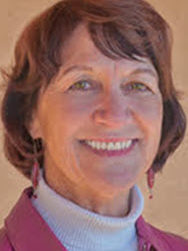
By Mary McPhail Gray
Board Chair
“There must be something in the atmosphere! We have had one crisis after another with our clients at school this week!” commented a Taos Behavioral Health professional in late October. “Oh yes,” said another—“The high school is also reverberating with turmoil from our students. But remember—this is the start of the holiday season. We are always in for a ride!”
October, with its sugar-load and complex preparation for Halloween parades and parties, starts the season. In Taos—it is enthusiastically celebrated by adults and youth—with planning and comparisons about costumes and “the haul.” The town of Taos and merchants have planned a celebration to pull people together on the historic district so that a safe holiday can be enjoyed. Credit and appreciation must go to them.
Yet the excitement of the holidays also comes with stress—especially for youth needing support with behavioral health needs. Youth receiving TBH services are deeply impacted by the security of familiar routines—regular schedules, healthy food at a stable schedule, time with familiar friends and family. The holidays tend to disrupt all those supports. This is especially the case when school is on vacation.
Youth may feel that time off from school means no rules—staying up late at night, playing constant video games, binging on television, and eating irregularly. For parents who are working full time and at multiple jobs—supervision of their family members is a challenge. Parents and other family members are also dealing with family traditions or plans that may carry demands and worries about expectations for participation in extended family groups. Some of the people may not be familiar to the youth or not liked by them. And one of the tough lessons that youth have often not accepted is that “We do this because we are family and I expect you to behave.”
Family gatherings and holidays are times when inappropriate child behavior is felt most acutely by parents. Let’s say your child does not want to go to Grandma’s house for dinner or to church with the whole family. She is angry about having to go and pitches a fit. This readily angers the parents who are likely to respond with comments about punishment and loss of privileges. The child becomes more out of control, and the parent’s despair may give in to changing their demands or acting with violence.
The hardest thing to understand is that the child is trying to solve a problem and has no good ways to express this. The parents—if they are committed to their plans—can acknowledge the child’s feelings but state the family decision. “I know you don’t want to go to this dinner—but we are doing this as a family. I will talk with you about how to relax and you can ask for my help if you are getting too upset.”
A really important action is to make sure that the child understands the schedule and the ways different gatherings will change his/her day.
Another part of planning for the holidays is to make certain that some activities are planned especially for the youth. It may be a movie or some sports event—but it needs to be valued by the youth and promised at a realistic family time. Arranging with other families who can join such events can help with child supervision and enjoyment.
A special situation for parenting involves the holidays in which grief is experienced by the family—or celebrations bring up difficult memories. This may be a recent death, or a youth may realize that some people cannot be in the celebrations due to a variety of tragedies—incarceration, serious illness or tough divisions between relatives. Depending on the child’s age—they react quite differently but it is important to share their sorrow—acknowledge tears and grief. It also can be possible to establish some new ritual or practice. The family can share memories and talk about providing honest answers about death. When youth are given unrealistic messages such as “Now you are the man of the house” or “Now you have to take care of your mother/father/other siblings,” usually youth do not understand what those phrases mean and how they can measure up. In addition, saying that death is “like sleeping” or “they are now an angel” creates anxiety and fear in children.
In summary, holidays present stress as well as joy. Honest planning, sharing the scheduled celebrations, keeping routines as familiar as possible and recognizing the need for healthy meals and adequate sleep will go a long way to enhance the joy.
Taos Behavioral Health has the largest credentialed and licensed behavioral health professionals in northern New Mexico. We can be reached at www.TaosBehavioralHealth.org or 575-758-4297.
Mary McPhail Gray is the board chair of TBH and can be reached at mcphailconsulting@gmail.com or 575-779-3126.

